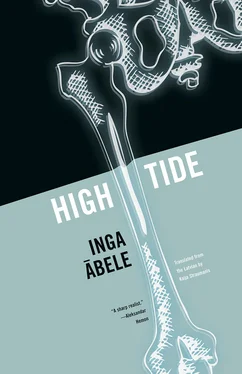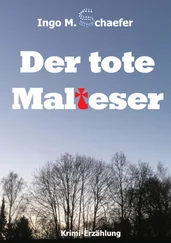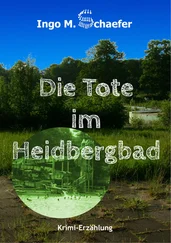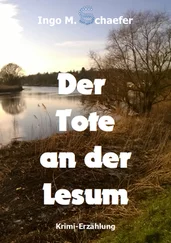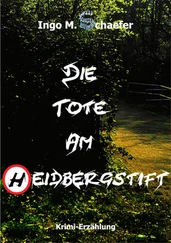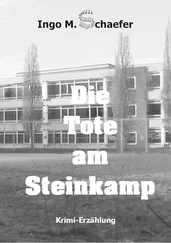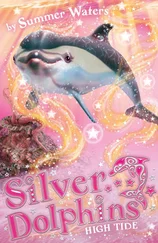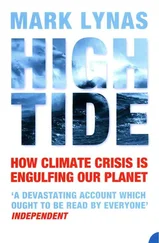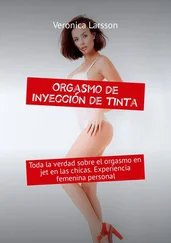Andrejs’s father is napping in the cool of his room upstairs and cries when he sees her. He grows airier every year, like some kind of butterfly. And more gentle. He used to be tough as a rock. He ruled over everything — animals and people. Was the final word for the women, the livestock, the men. Ieva can’t stand it. He’s lighter. Soon the wind will blow him away like dust. She can’t stand it. It makes her want to cry. Scream. But there’s no point. There are no tragedies in Kurzeme. Everything here is self-explanatory. The tears stream like sap from birch trees in spring. There’s no need to scream; this suffering is imagined. She has to say her goodbyes and go on with her life.
A young woman with large, naked breasts lies on the wide bed in the central room, nursing a baby. A hundred thoughts rush through Ieva when she looks at the baby. About Andrejs’s father, sitting in the next room waiting to be blown away by the wind. About Andrejs’s grandmother, still large and heavy in her grandson’s absence, but whose eyes are as teary as all the rest, who squeezes Ieva’s hand as she looks up at her and asks — what reason do I have to stay here? And she knows the answer already. To stay for the sake of staying. To live for the sake of living. To be happy for the sake of being happy. Even though just once she’d like to hear: Because you’re needed. We all need you. Hang on until the end. In this network of hands and hearts. This network of touches and glances.
Smells and a brilliant sun. Andrejs’s mother walks her out — they get in the car and drive over hills and muddy roads. They both cry. They both hide their eyes and know full well that they can’t hide them. The sun betrays them. Skin, pores, wrinkles, wet eyelashes, bright eyes and pitch-black pupils like moving mirrors, wetness smeared across temples and outside over the fields — it glistens. They have to part ways. Ieva is ready to accept even a single word laced with reproach, but it doesn’t come. Mothers are smart. They have to part on good terms. Andrejs’s mother stays on the hill, wipes her eyes with her handkerchief and heads back. Goes her separate way. Ieva honks the horn a few times in farewell.
From the depths someone whispers: All is well. The seaside villages are dipped in the red March sun as it sets. Ieva loves Kurzeme. She can smell it. It nourishes her.
Heinvites me to meet up with him.
We drink our morning tea on the terrace by the estuary. Next to us is another never-ending meeting — where the river flows into the calm sea. We drink strong, yellow tea that makes the blood in our temples sing like violins. We’re alone, with the exception of a few birds flitting about by our feet.
The sun is already high in the sky, but the clammy cold of last night still hangs in the air. Dew glints on some of the stone tables. Flies rest motionless on the banisters, and the granite floor is still covered in the layer of sand blown onto it overnight. The server reclines in a folding chair he’s put out in the sun, and smokes his first cigarette of the day while reading the paper. Now and then he pushes a hand back through his hair. The smoke that trails thinly up from his cigarette is carefree and winding, freely floating off into the great blue. I feel the structure of this city slowly course through me, saturating the cells of my body with its light.
I start to distinguish between the smells that hide shyly in gardens and those that aggressively rush in from the levee. I can visualize the shadow the black church steeple casts onto the central square, and how it always trips up the paperboy as he runs by with a newspaper bundle in his arms. I realize: if I lived in this city permanently, I’d have to huddle under a blanket with a mug of tea in the middle of the day just to fight off the chills from the persistent blue and razor-sharp cold of the sea.
“More tea please,” I say to Aksels, and in the moment the tea slowly pours from the teapot into my cup, a whirlwind of clarity rises up inside me so strongly that my chest tingles, almost like when you step up to the very edge of a cliff. I suddenly know that the dead come back to life and how they do it. I know how the living come back dead. I know what it’s like to be a bird, a dog, and a spider, I oversee everything in this exact moment of time, a few seconds that last an eternity. The wind blows my hair across my bare shoulders and it’s a loving caress. The city looks on with seeing eyes. I no longer have to count on the rare handouts from friends. From here on out, every new morning, every stranger will be a friend and an embrace — joyful and dramatic. We are all trapped in life.
The contour of the sea is wrapped in a haze. I can fly. And I can not fly, there’s no difference anymore. There’s no need to separate these concepts.
“Such a clear morning,” I say to Aksels.
Someone’s feeding seagulls from a barge and the water looks like goose bumps. The breeze surrounds us. Reflections dance on the surface of the tea.
“Like the one before you died,” I say.
“Yeah.”
“Do you think I described it well enough?”
I can tell he doesn’t want to talk, just look out onto the horizon. He doesn’t see any point in talking things out. But there’s an excitement eating away at me like before a long-awaited vacation. I ask and ask. And finally he starts to talk. He tells me about what I haven’t written.
Once he and Ieva had talked about making a life together, about moving into a house, about how they could someday actually live — with everything living entails — with tea in the morning, dinners, flowers on the windowsills, and kids. They’d been walking along the dirt road with the birds of summer singing around them. Ieva had gotten pebbles stuck in her sandals.
“The roof is leaking and one of the corners of the stove is broken,” Ieva had said. “Where’ll we start?”
This daily complexity surrounding a simple road.
“Let’s make a deal — we’ll live once we’re thirty, but not until then,” Aksels had answered.
“Life is too long for a single happy life,” he says now. “Life always consists of many lives.”
Back then Ieva had nodded and thrown her sandals with a whoop into the green fields. So long, pebbles! They both still had ten years to that looming thirty — ten years was a lifetime. They seemed a perpetual cycle of euphoric days and nights without an end in sight; an unbroken happiness.
We’ll live after that. This terrifying phantom at the end of it all. After that.
“We believed that ‘after that’ would never come,” Aksels says.
And it never did.
Aksels died. Ieva, on the other hand, has never loved life enough to want to live — to actually live. It’s her own fault. You need to immerse yourself in life like sinking your hands into the earth, you need to concentrate. Sprout roots. Break a sweat to earn a vacation. Nothing ever comes easy, Ieva’s Gran used to say. Yes, nothing ever comes easy.
“Why do people accept all these ridiculous rules as self-explanatory — only because they’re subject to them?” Aksels asks.
“I don’t know, I’m too lazy to look into it,” I answer. “And it doesn’t interest me. It’s boring.”
Ieva was the same way. She lived without living, and that’s her weakness. She was a bird picking at crumbs with wise ignorance. Morsels of sun.
“But if you really think about it,” I say, “the only reason we’re sitting here is because she’s remembering you right at this moment.”
To a random observer this could look to be a strange kind of celebration — the sea, the morning, and seagulls. And two people sitting next to one another in silence. A little over ten minutes while drinking tea. To both of us, these minutes are the entirety of Aksels’s life.
Читать дальше
